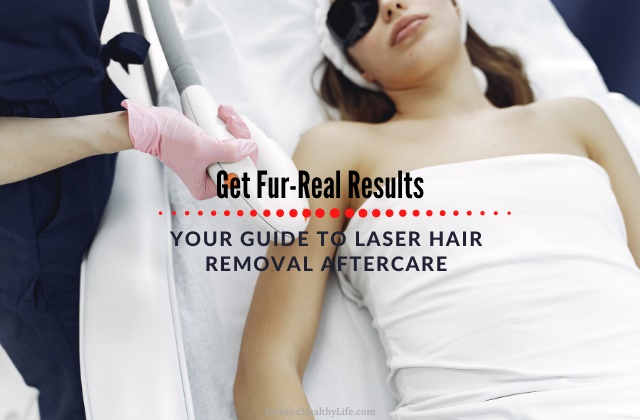
Are you looking for the most painless process of permanent hair removal?
“Laser hair removal is the most efficient method for gradually transforming furry limbs into supple, seal-like limbs,” says Dr. Deepesh Goyal, the founder of Rejuvena Cosmo Care, Jaipur’s excellent plastic surgery clinic.
So, if you’re ready to commit to (semi-) hairlessness, here’s what to expect after you’ve had your hair removed with lasers.
After laser hair removal, what should I do?
A dermatologist usually does laser hair removal. Concentrated light beams are used to target hair follicles and break down their roots.
Here’s what to do after laser hair removal, whether it’s on your panty line or your pets:
- Maintain your composure: To reduce swelling after surgery, apply an ice pack or a cool cloth.
- Take your medications exactly as prescribed: To relieve pain and promote healing, your dermatologist may prescribe a steroid cream or other treatments.
- Protect your skin from the sun’s rays: You’ll have to wait about a month before you can show off your new skin. (A month before the procedure, you should avoid sun exposure to the affected area.)
What to expect after laser hair removal for a smooth start
To minimize side effects, your dermatologist will consider your unique skin and hair type, lifestyle, and medications when selecting the appropriate laser and performing the treatment.
Your job isn’t done when the lasers go out. To reduce the risk of side effects and ensure the best results, give the affected areas gentle TLC.
Even if you follow your doctor’s instructions to the letter, you can expect the following side effects after the procedure:
- discoloration
- swelling
- redness
- mild discomfort
These should fade in 1 to 3 days, according to Dr. Deepesh Goyal, among the best plastic surgeons from Jaipur.
Something isn’t quite right.
If you experience more severe side effects, such as:
- significant swelling
- burns or blisters
- severe pain that doesn’t respond to the meds your doc prescribed
- scarring or pigmentation changes
- symptoms of infection (like pus, discoloration, or redness)
- side effects that persist after three days
After laser hair removal, here’s how to take care of yourself.
Although laser hair removal is a non-invasive procedure, it is essential to take precautions to ensure the best results.
After the procedure, your dermatologist will give you specific instructions on how to care for your skin. This is what Dr. Deepesh Goyal of Jaipur recommends in general.
Keep your cool.
The lasers have heated your skin; now it’s time to cool it down. Apply a clean, soft washcloth to the affected area with cool water regularly.
To reduce swelling and discomfort, use an ice pack wrapped in a paper towel.
Take/apply medications exactly as prescribed.
To alleviate any after-burn, your doctor may prescribe a steroid cream.
To relieve symptoms, you can take Tylenol or an over-the-counter anti-inflammatory but check with your dermatologist first.
Protect your skin from the sun’s rays.
It may feel like a chore to keep your newly smooth legs away from the beach for a month, but it’s precisely what the doctor ordered.
Avoid sun exposure to the treatment area one month before and one month after the procedure because the affected area will be extra sensitive.
After that period has passed, slather on the sunscreen.
What about lasers that can be used at home?
The aftercare for laser hair removal at home is nearly identical. When you DIY, you can’t choose the best method and laser type for your hair and skin type.
So you’re just going with the flow. However, experts advise consulting a laser hair removal specialist. Without professional guidance, you’re also more likely to experience severe side effects.
On the other hand, they are “modestly effective,” says Dr. Deepesh Goyal, the founder of Rejuvena Cosmo Care.
Here’s what you shouldn’t do after laser hair removal.
There are a few points you should avoid while your skin heals once you’ve had your procedure.
Here’s a list of stuff you shouldn’t do:
- Do not schedule a treatment within the next 4 to 6 weeks: Multiple treatments may be required to achieve your desired results, but your skin will need time to heal in the meantime.
- Waxing and tweezing are not recommended: Tugging and picking at the skin can aggravate the situation.
- Don’t get a tan: Spending too much time in the sun (or in a tanning bed) can lead to severe burns or permanent hyperpigmentation. Return to your beach bunny routine after a month.
- Don’t use tanning lotion: There will be no fake tans, at least for a week. Tanning lotions commonly contain chemicals that can cause rashes, burns, or bumps on the skin.
- Applying scented, fruity, or perfumed products to the area is not a good idea: For a week after the procedure, avoid using any fragrances, detergents, or perfumes. Because the site is vulnerable, harsh chemicals may cause a reaction.
- Deodorants should not be used (if you got laser hair removal in your armpits): For about seven days, pretend you’re in the 1800s.
- Body scrubs should not be used: After that, avoid harsh exfoliating scrubs for about a week.
- Showers and baths should not be too hot: If you want to jump back into a *scalding hot* shower, give it at least 48 hours. Also, avoid the saunas and steam rooms.
- Do not use the pool or the hot tub: For at least a week, avoid chlorine or harsh chemicals.
Territories that are stubby: Is it possible to shave after laser hair removal?
Is your stubble still there after laser hair removal? According to Dr. Deepesh Goyal, your initial laser hair removal will eliminate 10 to 25% of the hairs in the treatment area.
That’s perfectly normal. Although tweezing and waxing aren’t recommended, you can shave after about a week post-laser if you’re careful.
Wait until any swelling, discomfort, or discoloration has subsided before proceeding.
Never shave skin if it’s:
- red or discolored
- inflamed
- painful or irritated
According to Dr. Deepesh Goyal, most people require six treatments to remove their hair altogether.
After laser treatment, what kind of skincare can I use?
While you wait for your skin to heal, you may need to make some changes to your skincare routine.
- Remember to use lukewarm water: for at least a week after your procedure. Even if you enjoy taking hot showers. For the time being, you’ll have to settle for something a little more subdued. The area can be irrigated by hot water.
- Use fragrance-free everything: For sensitive skin, look for hydrating, gentle lotions and cleansers. Also, avoid using harsh scrubs and exfoliants. If you’re in doubt, 100 percent aloe vera should suffice.
- Skip the shaving cream: Remember, if you want to avoid problems, you shouldn’t shave for at least a week. Hair removal creams are the same way.
About The Author:
Murshid Paravath is a passionate health blogger. Enjoys writing about all of the health-related issues that affect various parts of the body and addressing her readers about the care that needs to be taken in today’s world.




